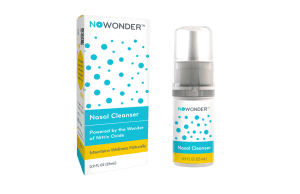 It’s easy to mistake ringworm for some other red or itching patch on the skin. This common fungal infection often looks like a red, scaly rash, but many different skin problems can cause similar patches. Whether it’s eczema, psoriasis, or even an allergic reaction, not every circular rash is caused by fungi that cause ringworm.
It’s easy to mistake ringworm for some other red or itching patch on the skin. This common fungal infection often looks like a red, scaly rash, but many different skin problems can cause similar patches. Whether it’s eczema, psoriasis, or even an allergic reaction, not every circular rash is caused by fungi that cause ringworm.
Ringworm can show up almost anywhere on the body, from the scalp to the feet. It’s especially common among people involved in contact sports, those who use shared showers, or spend time in locker rooms. It spreads through skin-to-skin contact, by touching contaminated surfaces, or even from pets. The good news is that most cases respond well to over-the-counter antifungal treatments, such as antifungal creams.
So, how can someone tell the difference between ringworm and other conditions? Here are some clues:
-
Ringworm often has a raised edge and a clearer center, giving it a ring-like appearance.
-
It usually itches and may slowly grow in size.
-
Other skin conditions like eczema or psoriasis don’t follow the same ringed pattern and may flake or ooze differently.
Understanding the early signs and comparing symptoms can help a person start treatment sooner and avoid unnecessary worry, or worse, spread.
About ringworm and similar skin conditions
Ringworm is the name for a group of skin infections caused by a type of fungus, not a worm. The medical name is “tinea,” followed by the area it affects, like tinea corporis for the body or tinea pedis for the feet. These infections are part of a group of fungal infections that also includes athlete’s foot and jock itch.
Because it spreads easily, ringworm is often seen in environments where people are in close contact, such as gyms, locker rooms, and sports teams. The immune system usually keeps fungi in check, but when it’s weakened or when the skin is broken, fungi that cause ringworm can take hold.
Recognizing the signs of ringworm is crucial, but it’s not always easy, as many other skin conditions can appear similar. That’s why comparing patterns, symptoms, and how the rash spreads helps tell one from the other. 
What is ringworm?
Ringworm is a skin infection caused by specific types of fungus. The most common culprits are Trichophyton, Microsporum, and Epidermophyton. These fungi can infect the skin, hair, and nails, leading to various forms of ringworm depending on the affected body part.
- Trichophyton: This is a frequent cause of ringworm on the body (tinea corporis), scalp (tinea capitis), beard (tinea barbae), and nails (tinea unguium).
- Microsporum: Primarily associated with tinea capitis, especially in children, and can also cause ringworm on the body.
- Epidermophyton: Commonly found in cases of tinea corporis and tinea cruris (groin area).
These fungi thrive in warm, moist environments and can spread through direct contact with infected individuals, animals, or contaminated objects like towels, clothing, and surfaces.
Ringworm creates red, round, itchy patches on the skin that can spread if not treated. Despite its name, it doesn’t involve any worms.
Key facts:
-
It spreads through contact with infected people, pets, or surfaces.
-
It’s common in warm, damp areas of the body.
-
It thrives in places like gyms, pools, and locker rooms.
-
It can affect the scalp, feet, groin, or body.
Mild cases often clear up with antifungal creams, while more severe infections may require prescription medication.
What are the signs and symptoms of ringworm?
The most noticeable sign of ringworm is its shape. It often starts as a small, itchy bump and grows into a red circle with a clearer center.
Other symptoms include:
-
Raised, scaly edges that may form a ring
-
Itching, burning, or stinging sensations
-
Slight cracking or flaking of the skin
-
Spread to nearby areas, especially if scratched.
-
In some cases, fungal infection can cause thick, brittle nails or scaly patches on the scalp.
Unlike other rashes, ringworm typically maintains its distinctive ring shape and can continue to grow larger over time. About treating ringworm and similar infections
What FDA-approved treatments for ringworm are available? 
Most cases of ringworm can be treated with over-the-counter antifungal products. These include:
-
Antifungal creams such as Agisten, Aquos Ointment and Daktarin
-
Shampoos
-
Powders
For tougher cases, prescription-strength antifungals like Nystatin, Diflucan, Mentax, and Lotrisone, Stieprox Shampoo for scalp infections
These treatments work by stopping the growth of the fungi that cause ringworm, allowing the skin to heal.
How do current treatments help ringworm?
Antifungal creams work by breaking down the fungus’s cell wall. This stops it from growing or spreading. When used regularly, these treatments can clear mild infections in about 2 to 4 weeks.
They help by:
-
Reducing itching and redness
-
Stopping the fungus from spreading to other areas
-
Lowering the chance of spreading the infection to others
-
Helping the immune system restore healthy skin faster
Starting treatment early is key to preventing a more serious fungal infection.
Are there off-label treatments for ringworm?
In some cases, doctors may use off-label antifungal medications intended for other types of fungal infections. These may include:
-
Antifungal shampoos for scalp ringworm
-
Topical steroid-antifungal combinations (used with caution to avoid side effects)
-
Antibacterial ointments are used if bacteria join a fungal infection
- Oral medications such as Itraconazole, which treats systemic fungal infections,
These are not first-line treatments but may be used when standard care isn’t working or if symptoms are severe.
What are the most common side effects of treatments for ringworm?
Over-the-counter antifungal such as Undecyl ointment, products are generally safe but can sometimes cause:
-
Mild stinging or burning when applied
-
Redness or irritation at the application site
-
Dry or peeling skin with prolonged use
-
Rare allergic reactions in sensitive individuals
Oral antifungals may cause:
-
Upset stomach
-
Headaches
-
Changes in liver enzymes (with long-term use)
To reduce side effects, it’s important to follow label instructions and avoid overuse.
 Conclusion
Conclusion
It’s not always easy to tell whether a rash is caused by ringworm or something else. Because fungal infections can look similar to eczema, dermatitis, or allergic reactions, a closer look at the shape, spread, and symptoms can help. Ringworm is usually itchy, ring-shaped, and gradually grows outward. Other skin conditions may not have that same ringed look.
People who spend time in locker rooms, play contact sports, or live in warm, humid environments are more likely to come into contact with the fungi that cause ringworm. Sharing towels, touching gym mats, or cuddling with an infected pet can also pass it along.
Most mild cases respond well to over-the-counter antifungal products like antifungal creams. More serious infections might need prescription medication, especially if they involve the scalp or nails. With early care and regular treatment, most people see improvement in a few weeks.
When in doubt, a doctor can help confirm the cause and recommend the best treatment. Keeping the skin clean and dry, avoiding shared personal items, and being aware of how infections spread can go a long way toward prevention.
Frequently asked questions about ringworm and lookalikes
What is mistaken for ringworm?
Several skin conditions are often mistaken for ringworm, including:
-
Eczema or atopic dermatitis
-
Psoriasis
-
Nummular dermatitis
-
Seborrheic dermatitis
-
Insect bites or allergic rashes
Unlike ringworm, these usually don’t have a clear ring shape with a scaly edge and a center that looks clearer.
What happens if ringworm goes untreated?
If left untreated, ringworm can:
-
Spread to other areas of the body.
-
Become more inflamed or crusty.
-
Get infected with bacteria due to scratching.
-
Pass to other people or pets.
While not life-threatening, untreated fungal infections can become harder to manage over time.
Does ringworm spread on your body?
Yes, ringworm can spread:
-
Through scratching or touching the rash
-
By using contaminated towels or clothing
-
To other body parts, especially in warm, moist areas
-
More easily when the immune system is weak
Treating early and keeping the skin clean helps stop the spread.
What do the stages of ringworm look like?
Ringworm often goes through these stages:
-
A red or itchy bump
-
A circular patch with raised, scaly edges
-
A clearer center forms, giving the “ring” shape
-
The patch grows outward if not treated.
-
Skin may peel or crack at the edges
Recognizing the ring shape early makes treatment easier and faster.
Can ringworm heal on its own?
Mild cases may eventually go away without treatment, but this can take weeks or even months. During that time, ringworm can still spread to others. Using antifungal creams or over-the-counter antifungal treatments can help clear the rash faster and reduce symptoms.













